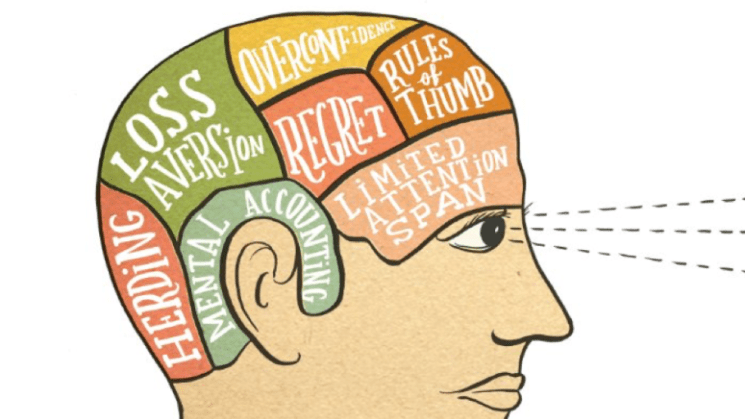We’re in San Diego this week for the Schwab IMPACT conference. There are 5,000 advisors and other financial services industry professionals here at the San Diego Convention Center. This is one of the most impressive conferences we’ve attended in our 30+ year careers.
On Monday, Terry attended a session on “behavioral investing” presented by Jay Mooreland. He met Jay a few years ago in Portland and we ended up buying his book, The Emotional Investor. Jay has a bachelor’s degree in Finance and a masters in Applied Economics, and he is a Certified Financial Planner. Jay’s been an advisor for over 20 years. So, he has credentials and experience which make him a credible presenter to an audience of financial advisors.
Jay believes advisors need to do a better job of helping clients make wise decisions regarding their personal finances, and their investments in particular. He maintains that building financial plans and managing portfolios for clients is not enough. The best plan and the most fundamentally sound portfolio are worth little, if the client for whom they were built makes decisions and takes actions that conflict with them.
We agree with Jay. Over the years, we’ve grown to realize that our highest duty is to help our clients achieve and maintain financial security. While investment returns are important, they’re of little significance if our clients cannot live the way they wish for as long as they live. We believe our role is to serve as a “pilot”, if you will, for our clients. They own the boat. But we can join them onboard and help them navigate the currents, winds, storms, and lulls that invariably mark a financial journey.

The infamous 1998 Sydney to Hobart race
Jay notes that investors are emotional beings, not “rational actors”. That’s interesting, because traditional economic theories assume that people (the actors) are rational decision-makers and that emotions don’t impact their decision-making. We all know that’s not true. The field of behavioral finance has emerged over the past 25 years in recognition that people are more influenced by their emotions than they are by their rational thoughts.
Financial advisors are increasingly incorporating behavioral finance into their work for their clients. Historically, advisors have tried to convince clients of the merits of their investment approach by presenting technical investment concepts and working to educate their clients about them. This may work for some clients, but most clients don’t understand the technical aspects of investing and, candidly, don’t care about them.
There is a better approach. Jay feels advisors need to spend more time helping clients understand their own emotions around personal finance, including investing, and help them make emotionally-sound decisions. We agree. We endeavor to educate, empower and support our clients to make wise financial decisions. There have been times when we’ve realized that a client was grappling with money-related emotional issues that we’re not professionally trained to address. When that has happened, we’ve referred our clients to a “financial therapist/coach” and we’ve paid for the initial consultation.
We are all emotional beings. However, to be successful as investor, one must recognize and manage the emotions that can push your boat off-course. An appropriate metaphor as we look out over the San Diego harbor.

PLEASE SEE important disclosure information at www.springwaterwealth.com/blog-disclosure/.
